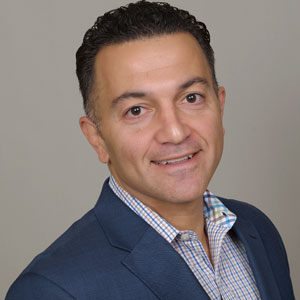By Clode Moradi, MSPFP, CFP®, FBS®
 Ever wonder how credit card companies can giveaway so many rewards and still have enough money left over to take the world by storm? Seems like this question has been the main event in my practice, for the last six months. As I work with clients in the beginning stages of their process, I observe the spending systems that they currently have in place and work to identify strengths and weaknesses that we need to work on. One of the most common process’s for spending is to spend everything on a rewards card and pay it off at the end of the month before any interest is charged. That way, you get a bunch of “free” miles/rewards and don’t have to pay any interest on your purchases. Seems like a no brainer, until we remember the old saying that there’s no such thing as a free lunch in business. That saying is often times used as a smart remark meant to provoke a smile or a laugh, but when it comes to money and business, it is very true.
Ever wonder how credit card companies can giveaway so many rewards and still have enough money left over to take the world by storm? Seems like this question has been the main event in my practice, for the last six months. As I work with clients in the beginning stages of their process, I observe the spending systems that they currently have in place and work to identify strengths and weaknesses that we need to work on. One of the most common process’s for spending is to spend everything on a rewards card and pay it off at the end of the month before any interest is charged. That way, you get a bunch of “free” miles/rewards and don’t have to pay any interest on your purchases. Seems like a no brainer, until we remember the old saying that there’s no such thing as a free lunch in business. That saying is often times used as a smart remark meant to provoke a smile or a laugh, but when it comes to money and business, it is very true.
In my studies at Kansas State University, I’ve spent some time going over research and theory in regard to human behavior and the process’s involved when making money related decisions. One of the most interesting areas of study I have come across pertains to how the human brain functions when faced with different methods of making purchases. More specifically, some of this interesting research has looked at human brain activity when making purchases using cash in comparison to a plastic card. I don’t want to turn this article into a research paper, so I’ll give you my interpretation of the findings and which parts I put to use with clients in my own practice.
What the Research Indicates:
There is some solid research done on how our brains react when making purchases using cash versus using a debit card/credit card as a method of payment. It seems like we intuitively realize the true value of our money when it is physically in our hands. To put it another way, we better realize the cost impact of our purchases when we are forced to fork over the cash. The money leaves our hand immediately. The findings indicate that the pain our brain experiences, when handing over cold hard cash, forces us to be more mindful of what we are spending on. The way I explain this is to my clients is that their need versus greed meter works better when they are conscious of the immediate trade off.
When we pay cash, we give up the cash and it’s gone. In exchange, we get whatever it is that we purchased. In comparison, when we use a plastic card as a method of payment, the card is given back to us along with whatever it is that we purchased. There is no immediate pain. Can you see how our brains can unconsciously interpret these transactions differently? In the first scenario, we give up something to get something else in return. In the second scenario, not only do we get our vehicle of payment back, but we get the item purchased as well, without having to pay for it now. Who knows what tomorrow will bring? In the now, nothing leaves our hand and our parting with the money is not tangible. The consequence is delayed.
Why is This Bad?
The reason that this can be problematic is the fact that we are one layer detached from the money we worked so hard to earn. Our brain does not experience the initial shock of physically parting with our money. In many scenario’s, this can manifest into a more relaxed attitude to spending and as a result we spend more. A lot more…
It’s not by chance that nowadays everything is so convenient. Convenience is great, but it also drives consumer behavior that goes deeper into the subtleties of how we perceive money and not having awareness around that can have a significant impact on our spending habits.
So, what is one to do? Should we only use cash? Not necessarily. The point is not to jump to extremes and declare that we are doomed if we don’t use cash. What we need to do is be alert and aware of our mental process’s instead of being a slave to them. Having to use your plastic card is inevitable and a sign of the times. It’s a convenience that I enjoy myself. However, there are techniques that can be used to counter the numbing down of our judgement when faced with making purchases that are conveniently made convenient for us to acquire. Knowing the science behind why credit cards are so aggressively marketed and having knowledge of your own purchasing process’s goes a long way. I still use a miles card sometimes (that I pay off each and every month), but every time it’s used I implement techniques that allow me to consciously part with the money, as if it were tangible cash.
Balance is Worth It
One of the biggest rewards I’ve experienced as a financial planner has been the privilege of working with individuals and families in fine tuning their process’s and bringing things back to a balance. Ultimately, we want to develop the necessary skills that will help us make better decisions, while still being able to enjoy the amenities that modern society and technology provide.
I get a lot of questions regarding what affects your credit and what to do if it is negatively impacted. Here is a great article on Money.com on
“How to Get Items Removed From Your Credit Report”

Clode Moradi, MSPFP, CFP®
Clode is an independent Certified Financial Planner™ and has a Post-CFP® Masters Degree in Advanced Personal Financial Planning, from Kansas State University, one of the most prominent financial planning universities in the nation. He graduated at the top of his class with a 4.0 GPA and was awarded a nomination and acceptance into the honorary society of Phi Kappa Phi to represent the importance of higher education in the Financial Planning industry.
Clode specializes in taxation, retirement, and investment planning as they relate to personal goals and quality of life. He also holds a Graduate Level Certification in Financial Therapy, and has written extensive research articles on financial topics such as goal based portfolio construction, how to define “financial success”, money psychology and its manifested human behaviors, and various other topics related to finance, taxation, and human behavior as they relate to one’s quality of life. Clode also has a Bachelor’s Degree in Personal Financial Planning, where he graduated Summa Cum Laude from Franklin University of Ohio. He is an active member of the Financial Planning Association and Financial Therapy Association.
Clode is the founder of Brilliant Financial Strategies, LLC. He started in the financial industry more than 20 years ago and created BFS as a platform to offer financial planning at a much deeper level. Clode feels that Financial Planning needs to break out and surpass the status quo. “Our job is to help clients make use of their financial potential to build a meaningful life”.
He enjoys spending quality time with his wonderful family. Clode’s hobbies include saltwater fishing and Brazilian Jiu-Jitsu. Clode is the creator of a group called Kool Kids Fish that introduces kids and their parents to the hobby of fishing, as a means of spending quality time together. Clode also coaches a kids Jiu-Jitsu Competition class at Gracie Barra La Canada-Flintridge, where he works with kids and teens that compete in Jiu-Jitsu tournaments nationally. One of his most valued personal accomplishments is receiving his brown belt in Brazilian Jiu-Jitsu from ADCC world champion Orlando Sanchez of Gracie Barra.
Clode’s approach to life, money, and financial planning is to create quality of life through balance and honest self-reflection. He believes that abundance can only have value when there is balance in one’s household, family, and internal being. He brings this approach to all aspects of life.
Disclaimers
This article is for reference and informational purposes only and does not provide tax, legal, or accounting advice. It is for guidance only and not a substitute for the user seeking personalized financial planning and professional advice. It is not intended to provide, and should not be relied

